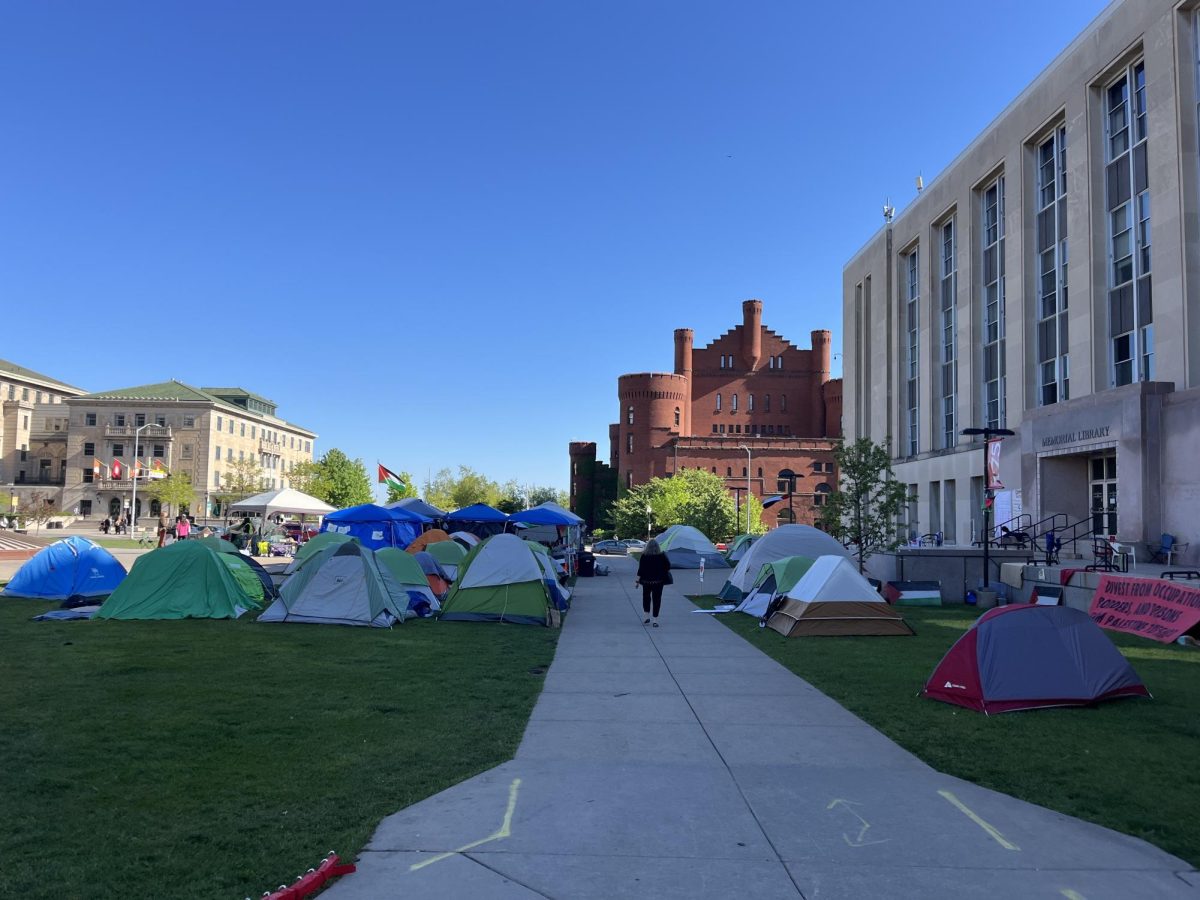The Democratic Party of Wisconsin announced Tuesday that another potential presidential candidate would be speaking at the group’s state convention in June, on the same day the Wisconsin State Legislature finished approving a bill that would move the state’s primary election to February.
Howard Dean, the Democratic governor of Vermont, will speak, joining other party nomination hopefuls such as U.S. Sen. John Kerry, D-Massachusetts, and Sen. John Edwards, D-North Carolina, who will be represented by his wife Elizabeth. Gov. Jim Doyle and members of Wisconsin’s Congressional representation will also be speaking at the convention.
Seth Boffeli, spokesman for the Democratic Party of Wisconsin, said that all of the nine candidates for the Democratic National Committee endorsement had been invited, but some have yet to respond and some cannot attend because of prior engagements.
Dan Leistikow, spokesman for the governor, said Doyle would sign the election bill into law.
“The governor believes the law is a good thing for the state in that its citizens will have more of a say in who gets to be nominated,” Leistikow said.
When legislators first presented the bill, they wanted to give Wisconsin more pull in political-party national caucuses but also considered the flow of cash that might come into the state from campaigning candidates and their ensuing entourages.
“Hopefully, the 2004 presidential primary will be competitive and expensive so as to bring as many dollars as possible into the state’s economy,” Leistikow said.
Many states have been competing to move their primary elections earlier and earlier, but no one has proposed having the decision before Iowa or New Hampshire, who are traditionally the first states to hold primaries. Boffeli said in attention to the state convention, the state would receive more attention than ever as a player in national elections.
“I think a lot of the presidential candidates have seen that Wisconsin’s state legislature has been working on making their primary earlier, and that has made the state more attractive to them,” Boffeli said.
Boffeli said that in the last few years, Wisconsin had moved its primary date earlier to April from March, but even by that time, the parties were virtually decided on their candidates.
David Canon, professor of political science at the University of Wisconsin, said no one from the pool of candidates had asserted themselves as a favorite for the Democratic Party nomination.
“There’s definite accuracy to the statement that there’s no Democratic Party candidate that has emerged as a front-runner,” Canon said. “And in part, that’s because there hasn’t been a Democratic Party candidate that has emerged as a the right candidate to challenge George W. Bush.”
Canon agreed that Wisconsin would have a more influential role in presidential politics with the primary move.
“It will allow us to participate in a nomination process in a way that we hadn’t been able to in the past,” Canon said. “The state as a whole will have more of a say in the way the party candidate is selected.”
Some political analysts have questioned how any Democrat will be able to challenge the sky-high public opinion ratings current President Bush is enjoying following the success of his war against Iraq. But former President George Bush, Sr. found himself the losing as an incumbent under similar circumstances, when Bill Clinton spun the elder Bush as caring too much about foreign affairs and not about a receding domestic economy.
Canon said the younger Bush seems to have learned from his father’s experience in that he has been paying particular attention to the national economy following the war.
“They see potential for a repeat and they want to make sure that doesn’t happen,” Canon said. “The country has lost two million jobs since Bush took office, and people are afraid of a possible double-dip recession.”












